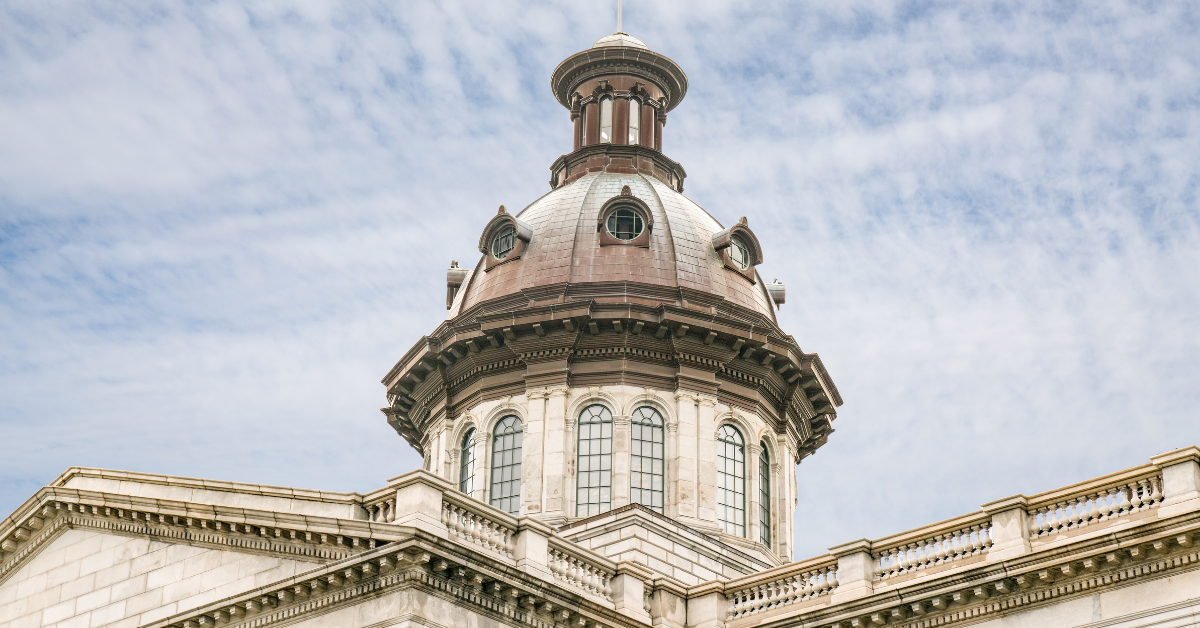The second regular session of the 124th South Carolina General Assembly is approaching its midway point. Lawmakers have been moving, amending, introducing, and reintroducing hundreds of bills – many of them focused on the state budget, tax cuts, election reform, education, and COVID-19, among other topics.
Pandemic Stimulus Funds
State lawmakers have had to figure out how to best spend the $2.5 billion South Carolina received from the federal American Rescue Plan Act of 2021. The State Senate and House both passed bills directing allocations of this money, with each measure sent to the other chamber for consideration.
Now, legislators will need to compromise on a final spending package to send to Governor Henry McMaster for his signature. The governor and Legislature proposed funds for transportation, broadband expansion, and water and sewer infrastructure improvements.
Healthcare
HB 4601 would designate ambulance service as an essential service in South Carolina, requiring each county to ensure that at least one licensed ambulance service operates within it. A House Judiciary subcommittee gave the bill a favorable report, and the measure will be on the next full committee agenda.
Lawmakers are also considering a proposal to divide the state’s far-reaching health and environmental affairs agency into two separate departments. Recently, the Senate Medical Affairs Committee voted to send a bill splitting up the Department of Health and Environmental Control (DHEC) to the Senate floor.
The bill would eliminate DHEC and create two new agencies, the Department of Behavioral and Public Health and the Department of Environmental Services. The Department of Behavioral and Public Health would manage the state’s public health and mental health responsibilities, while the Department of Environmental Services would deal with environmental regulation and protection and the functions of the water resources division of the Department of Natural Resources. Proponents say the realignment would allow public health officials to work more closely with colleagues on the state’s serious substance abuse problems. Both new departments would be cabinet-level agencies, meaning the governor would appoint their directors. Upon passage, the change would take effect on June 30, 2023.
COVID-19 updates
HB 3126 passed the House and is awaiting action in the Senate. The bill would ban state and local governments, including school districts, from imposing COVID-19 vaccine mandates on employees, contractors, and students as a condition of employment or attendance. It also prohibits these entities from firing unvaccinated first responders paid with public funds — defined as law enforcement officers, firefighters, EMTs, and paramedics.
Elections
The House unanimously passed HB 4919, allowing two weeks of early voting and tweaks to state election laws. If passed, South Carolina would become the 45th state to allow voters to cast ballots outside of Election Day without providing an excuse. The state already allows absentee voting, but voters must give a reason why they cannot be at the polls on Election Day.
Taxes
The state’s taxpayers could get an income tax rebate of between $100 and $700 per tax filing if the Legislature ultimately adopts a bill that passed through a Senate committee this week. The Senate Finance Committee unanimously approved SB 1087, sending the Comprehensive Tax Cut Act of 2022 to the full Senate. The rebates, which will affect 2021 tax filings due next month, are part of a $1 billion rebate. The bill also would reduce the state’s top two tax tiers (7% and 6%) to 5.7% for the 2022 tax year, a plan that would save taxpayers $887 million annually.
Abortion
Gov. McMaster has called on the Fourth U.S. Circuit Court of Appeals to review a federal trial judge’s preliminary injunction of the state’s Fetal Heartbeat Act, a measure he signed into law on February 18, 2021. The law ban’s doctors from performing abortions after detecting a fetal heartbeat, which happens as early as the sixth week of pregnancy. Doctors or healthcare providers who perform an abortion after this point could face a felony charge with a $10,000 fine and/or two years in jail.
Critics argue that some women do not know they are pregnant for the first six weeks. The law includes exceptions for rape, incest, fetal anomalies, and threats to the mother’s health. It also stipulates that doctors must give the sheriff the patient’s contact information within 24 hours of performing an abortion on a woman who became pregnant due to rape or incest.
Education
South Carolina currently has 1,100 teacher vacancies. The House Ways and Means Committee included a $4,000 raise for teachers in the House budget bill, increasing the average starting salary to $40,000. Teachers would also see an additional $25 in their annual teacher supplies fund, raising that amount to $300.



